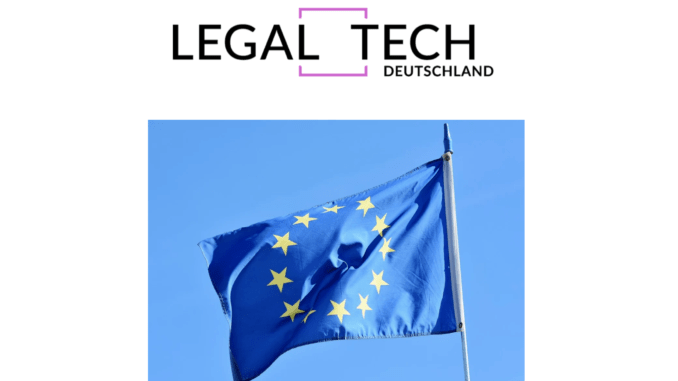
The German Legal Tech Association has produced a strongly-worded statement about EU plans to clamp down on litigation funding across Europe. The group, which includes law firms, tech companies, and corporates, said that the plans of the Legal Affairs Committee of the European Parliament (JURI Committee) gave a ‘distorted’ picture of the industry and could reduce access to justice.
The German group includes representatives from Arag and Allianz, and many well-known names in the legal market there. For example, Baker McKenzie’s Co-head of innovation and legal tech in Germany and Austria, Valesca Molinari, is a member of the Legal Tech Association’s board. The pan-European anti-funding campaign is led by a German politician, Axel Voss.
The very public pushback by Germany’s legal tech group follows the JURI Committee’s moves this summer to create new rules for litigation funding, which would cap litigation funders’ revenues and impact the ‘no win, no fee’ approach. This would also directly impact tech-led companies in Germany such as Flightright, wenigermiete.de, Rightmart, and Rightnow that help consumers to make legal claims.
The group continued that the report of the JURI Committee paints ‘a distorted picture of third party litigation funding in Europe. [The JURI report] says providers ‘act in their own economic interest, rather than in the legal interest of claimants’, ‘pocketing’ the proceeds of litigation, and leaving claimants ‘almost empty-handed’.’
The German Legal Tech Association rejects this initiative ‘as it violates the principles of subsidiarity and the sovereignty of the Member States in the field of justice. Its implementation would result in far-reaching cuts into national legal systems, both in substantive and procedural law.‘
I.e. Germany and other EU member states have the right to run their legal systems the way they want to, and this JURI plan to hit litigation financing would actually reduce legal representation in sovereign nations.
Yet another example of EU lawmakers getting ahead of themselves, it would seem. One could add to this the lopsided regulation of data privacy, and the misguided planned regulation of ‘AI’ even though many of the EU’s core ideas about ‘AI’ are fluffy and unclear at best.
It makes one wonder what is going on inside the EU’s institutions when they can produce so much bad legislation, both proposed and enacted, especially related to technology.
The German Legal Tech group went on to say in their statement: ‘The JURI Committee’s approach would make access to justice more difficult for a large number of consumers and businesses, because litigation financiers often create an equality of arms in legal disputes. This is particularly the case where the damaging party is financially superior to the injured party and where legal disputes are very expensive and time-consuming.
‘Two examples of this are antitrust damages and the handling of the diesel engine manipulations under civil law. The proposal ignores these advantages of litigation funding.
‘It opposes it as an undesirable phenomenon, and to this end formulates drastic encroachments on the freedom of disposition protected by property law and on the professional and entrepreneurial freedom of litigation financiers. Furthermore, the proposed directives undermines the European Directive on Representative Actions and the Directive on Antitrust Damages.
‘The proposals also undermine the German government’s commitment to litigation funding as a means of promoting equity in the distribution of social resources in the judicial system. This is because German consumer services such as flightright.de, wenigermiete.de or hartz4widerspruch.de also promote access to justice through the use of litigation funding.
‘With ‘no win no fee’ offers, they enforce the rights of injured parties who cannot afford a legal dispute or who fear their costs.’
The German Legal Tech Association separately also told Artificial Lawyer that this was for now an EU issue, but that there could be an impact on ‘UK law firms [if] they act on continental cases, or if the UK Government chooses to adopt the EU approach for its home territory.’